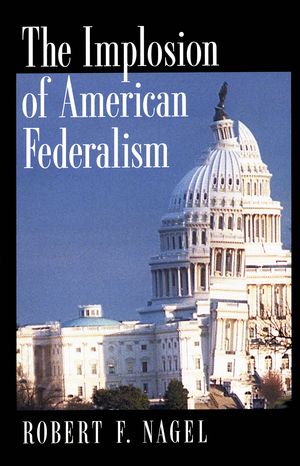
At a time of unprecedented national power, why do so many Americans believe that our nationhood is fragile and precarious? Why the talk-among politicians, academics, and jurists-of ""coups d'etat,"" of culture wars, of confederation, of constitutional breakdown? In this wide-ranging book, Robert Nagel proposes a surprising answer: that anxiety about national unity is caused by centralisation itself. Moreover, he proposes that this anxiety has dangerous cultural consequences that are, in an implosive cycle, pushing the country toward ever greater centralisation. Carefully examining recent landmark Supreme Court cases that protect states' rights, Nagel argues that the federal judiciary is not leading and is not likely to lead a revival of the complex system called federalism. A robust version of federalism requires appreciation for political conflict and respect for disagreement about constitutional meaning, both values that are deeply antithetical to the Court's function.;That so many believe this most centralised of our Nation's institutions is protecting, even overprotecting, state power is itself a sign of the depletion of those understandings necessary to sustain the federal system. Instead of a support for federalism, Nagel finds a commitment to radical nationalism throughout the constitutional law establishment. He traces this commitment to traditionally American traits like perfectionism, optimism, individualism, and legalism. Under modern conditions of centralisation, these attractive traits are leading to unattractive social consequences, including tolerance, fearfulness, utopianism, and deceptiveness. They are degrading our political discourse. All this encourages further centralisation and further cultural deterioration. This book puts the major federalism decisions within the framework of the Court's overall record, including its record on individual rights in areas like abortion, homosexuality, and school desegregation. And, giving special attention to public debate over privacy and impeachment, it places modern constitutional law in the context of political discourse more generally.